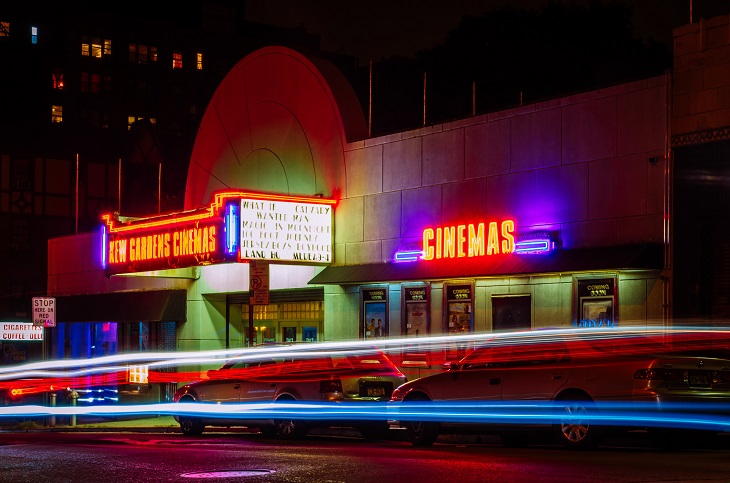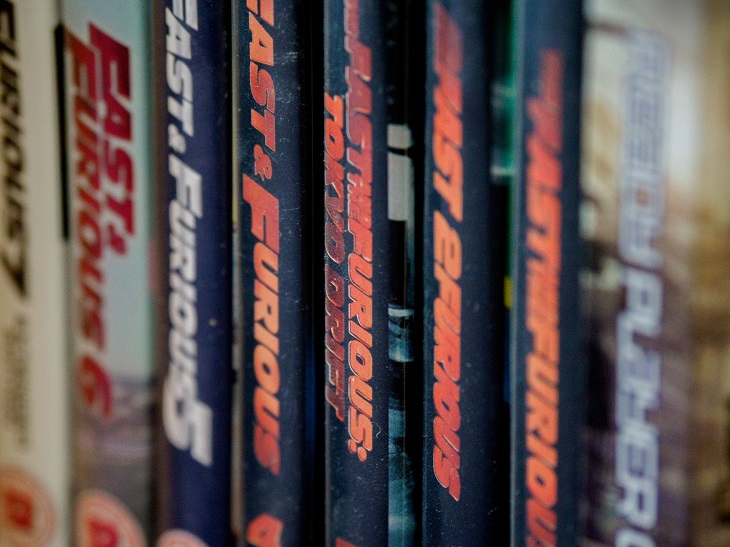NFTs In Cinema: Is Hollywood Ready For The Blockchain Revolution?

Cinema buffs will remember the old days of walking into theaters to enjoy your favorite movie. All you needed was a ticket – or, if you knew someone who worked at the cinema, you could even get in for free. (Don’t worry, we’ve all done it at some point.)
But the movie landscape is changing today. The change isn’t even so much about movie quality – it’s more about how the film industry is finding innovative ways to grow in terms of funding, distribution, and the movie experience. One such innovation is the adoption of blockchain technology in the form of NFTs in cinema, or Film 3, as it’s fondly called.
The question is: Is Hollywood ready for the blockchain revolution? Let’s explore how NFTs can be beneficial for movies and what the future could hold.
Quick Intro: What Are NFTs?
Before we look into the role of NFTs in cinema, it’s worth understanding what they are. “NFT” stands for “non-fungible token.” An NFT grants its holder ownership of an asset such as a piece of art, music, real estate, or even a full movie.
NFTs and cryptocurrencies are similar. They are both digital and stored on the blockchain. The difference is that an NFT is one-of-a-kind. You can swap one cryptocurrency for another and still have the same value you started with, but you can’t swap NFTs without a change in value, because no two NFTs are the same (even if they look the same). Each one has a unique unchangeable ID that differentiates it from others.

Understanding Film NFTs
NFTs have become wildly popular throughout the early 2020s. We’ve seen several artists share their work as NFTs and use them to raise money – sometimes a lot of money. Case in point: Beeple, who sold an NFT for $69 million in March 2021.
Once they became mainstream, it didn’t take long for NFTs to be adopted across different fields. And in the entertainment space, their potential seems endless. It was only a matter of time before Hollywood wanted a slice of the pie as well, and film NFTs provide the perfect way for that to happen.
A film NFT is a pretty simple concept: a movie made into an NFT. Artists have always been open to exploring new technologies, and film NFTs are central to the role of blockchain in the film industry.
What Film NFTs Bring to the Table
Now that we know what NFTs are, let’s examine how Hollywood is using NFTs.
Movie Financing
Money makes the world go round. If you’re an independent filmmaker, you know how challenging it can be to raise money for a movie project. You have to either fund your project with money from your pocket or hope to get movie funding from an investor – who will eventually take a large chunk of the profits. But with film NFTs, moviemakers and producers finally have an opportunity to make more cash, on their own terms.
NFTs provide a huge shift for filmmakers. Instead of waiting in line for investor funds, you can sell NFTs to members of the public and raise money from them. You could even offer different perks to buyers, encouraging them to purchase your film NFTs directly.
In 2021, Emmy-winning filmmaker Trevor Hawkins took this approach when he sold NFTs to finance his movie Lotawana. Hawkins offered 1,000 NFTs, each selling at $1,000. Buyers would get an ownership share of the movie, earning from its profits. Another collection was sold at $100, offering buyers access to the movie’s online premiere.
Movie Merchandising
DVDs with extras were once a great way for filmmakers to get additional income from movies. They cost a little more than the regular movies, and their owners could get additional benefits that regular buyers wouldn’t get. Remember those days when you would buy a DVD and get extras like featurettes, director’s cuts, or “special edition” tapes? That’s what we’re talking about.
Film NFTs can help in this regard as well. Creators can reintroduce these extras and earn more from their movies while also providing more value to their audience and fans.
Last year, an Oscar-nominated movie titled Claude Lazmann: Spectres of the Shoah was released as an NFT. The movie sold for 200 ETH per copy, while buyers were also able to get copies of unreleased extended director’s cuts and a signed digital movie poster.

A New Form Of Distribution
Another huge challenge for most filmmakers is finding the right channels to distribute their content.
Depending on the genre a filmmaker chooses, there are different distribution channels available –traditional cinemas, movie studios, streaming channels, YouTube, etc. But there’s one thing they all have in common: they all want a cut of that movie money.
NFTs can make this experience better for filmmakers. Instead of relying on a traditional distribution channel, they can release their work as an NFT through marketplaces like OpenSea. By directing buyers there, they can sell these NFTs themselves.
OpenSea is the world’s largest marketplace, and it has a simple fee model – 2.5% off every NFT sale, and that’s it. Compare that to traditional distribution methods that can take anywhere from 10% to 30%, and you’ll find that NFT distribution is much more cost-effective.
What’s Next For The Hollywood x Blockchain Collab?
Although they’ve only been mainstream for a few years, NFTs are already a major part of the movie industry. There have been a few really interesting examples of how Hollywood is using NFTs so far, and it will be no surprise to see more filmmakers and companies come up with more innovative applications of blockchain and NFTs in the future.
So, is blockchain the future of Hollywood? There’s no one-size-fits-all answer to this yet. Blockchain has proven to be a transformative technology that can change the way Hollywood does business. Thanks to things like NFTs and cryptocurrencies, it’s finding a lot of applications in the movie industry as well.
However, it’s worth noting that we’re still very much in blockchain’s early days. According to experts, blockchain has not reached its peak. So who knows? With the way the world is innovating, every movie could soon be an NFT. Now that would be interesting to watch!
Featured image by Paul Deetman on Pexels
Tags: Blockchain, Cinema, Film Industry, Filmmaking, Films, Hollywood, Movie NFTs, NFTs
